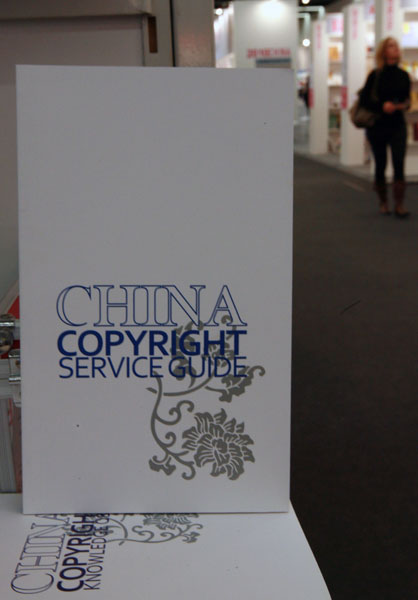Book market tries to turn a new page
Updated: 2012-02-17 08:37
By Zhang Yuchen (China Daily)
|
||||||||
He said the government is spending tens of millions of yuan each year to encourage publishing houses - private or State-owned - to broker copyright deals with companies in other countries to boost translation and distribution of Chinese works.
Statistics from the GAPP show that China signed just one copyright export agreement for every 15 imports in 2002. By the end of 2010, however, the ratio was down to 3-to-1.
A major wakeup call came in 2005, when senior officials attending the Beijing International Book Fair said they were shocked to learn that although Germany had sold more than 600 copyright agreements to China the previous year, just one had gone the other way.
"It (the "going out" policy) is not only about promoting the development of China's publishing sector in overseas markets," Chen said. "It's also about improving publishers' creativity in the domestic market."
Broader horizons
Many Chinese publishing houses have already opened branches abroad, with a view to selling more books in mass markets, and are investing more energy into boosting online sales.
"Yet, we have to face the reality that non-English-language books still account for only 2 percent of the total imported by all nations," Juergen Boos, director of Frankfurt Books Fair, told China Daily on Feb 4 during his visit to Beijing.
According to Jo Lusby, managing director of Penguin China, her company publishes five to eight Chinese novels in English-speaking markets every year, while for other languages "it's very little, probably two or three, and they are (mostly) classics".

 Relief reaches isolated village
Relief reaches isolated village
 Rainfall poses new threats to quake-hit region
Rainfall poses new threats to quake-hit region
 Funerals begin for Boston bombing victims
Funerals begin for Boston bombing victims
 Quake takeaway from China's Air Force
Quake takeaway from China's Air Force
 Obama celebrates young inventors at science fair
Obama celebrates young inventors at science fair
 Earth Day marked around the world
Earth Day marked around the world
 Volunteer team helping students find sense of normalcy
Volunteer team helping students find sense of normalcy
 Ethnic groups quick to join rescue efforts
Ethnic groups quick to join rescue efforts
Most Viewed
Editor's Picks

|

|

|

|

|

|
Today's Top News
Health new priority for quake zone
Xi meets US top military officer
Japan's boats driven out of Diaoyu
China mulls online shopping legislation
Bird flu death toll rises to 22
Putin appoints new ambassador to China
Japanese ships blocked from Diaoyu Islands
Inspired by Guan, more Chinese pick up golf
US Weekly

|

|








